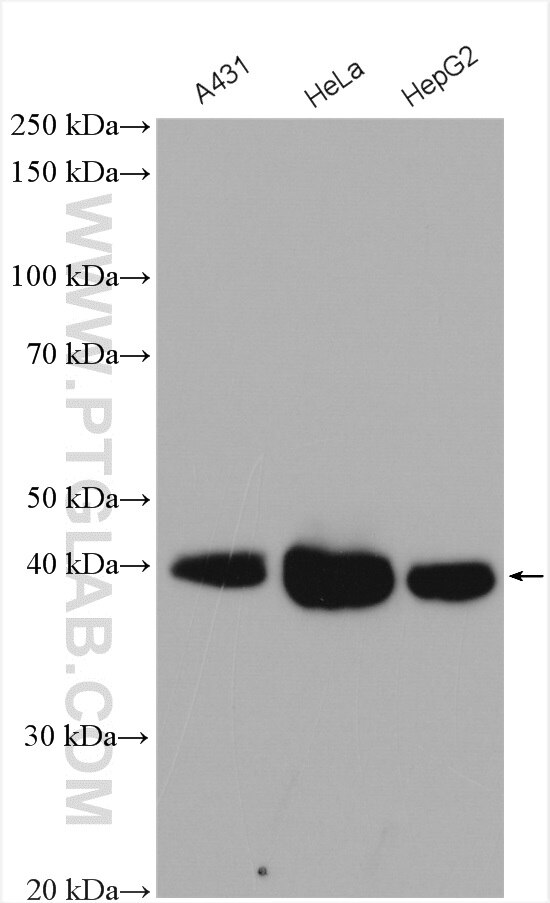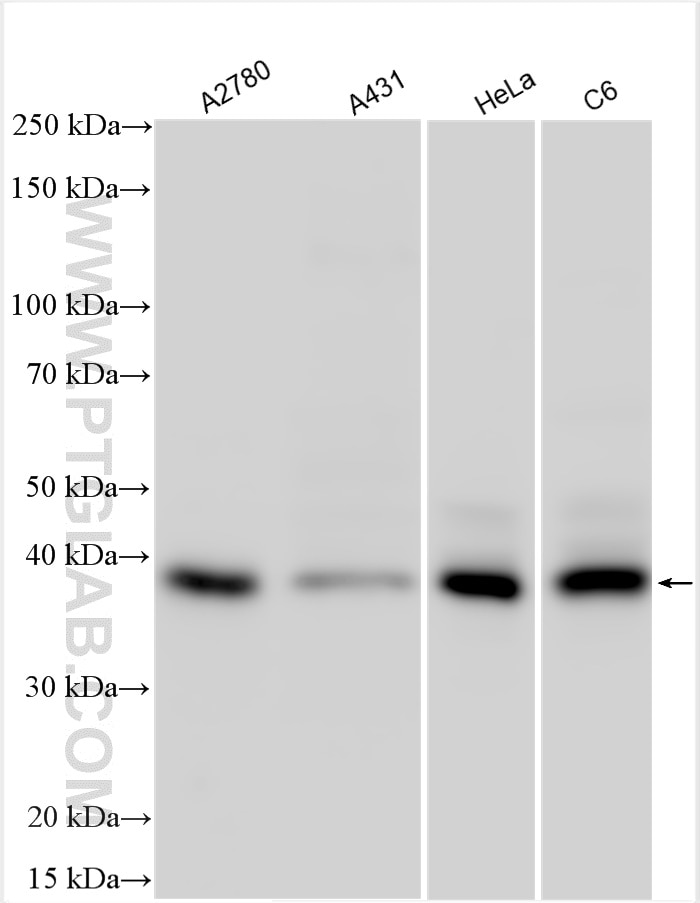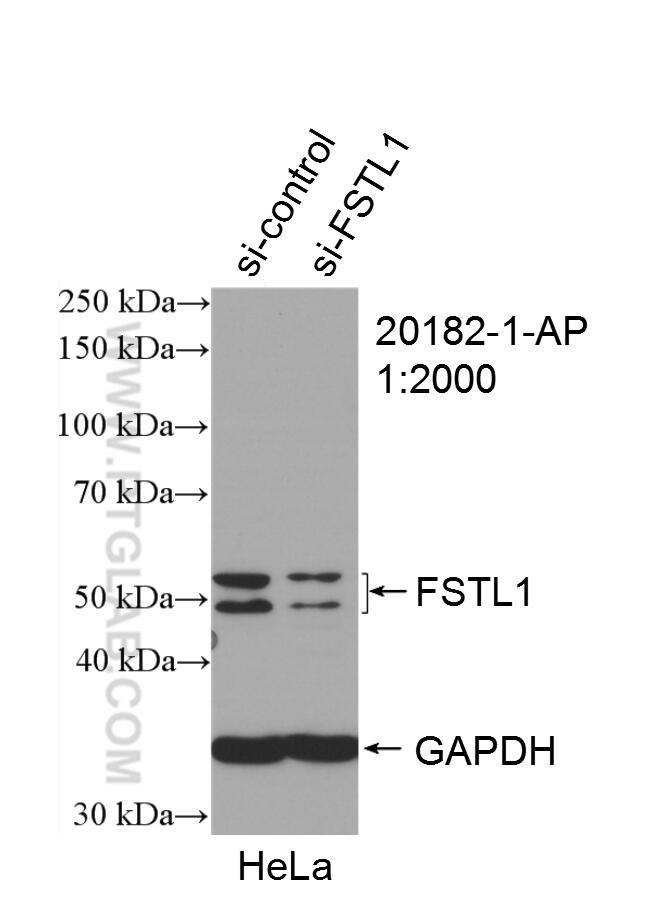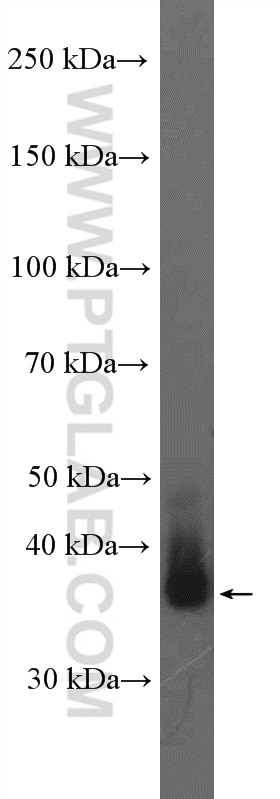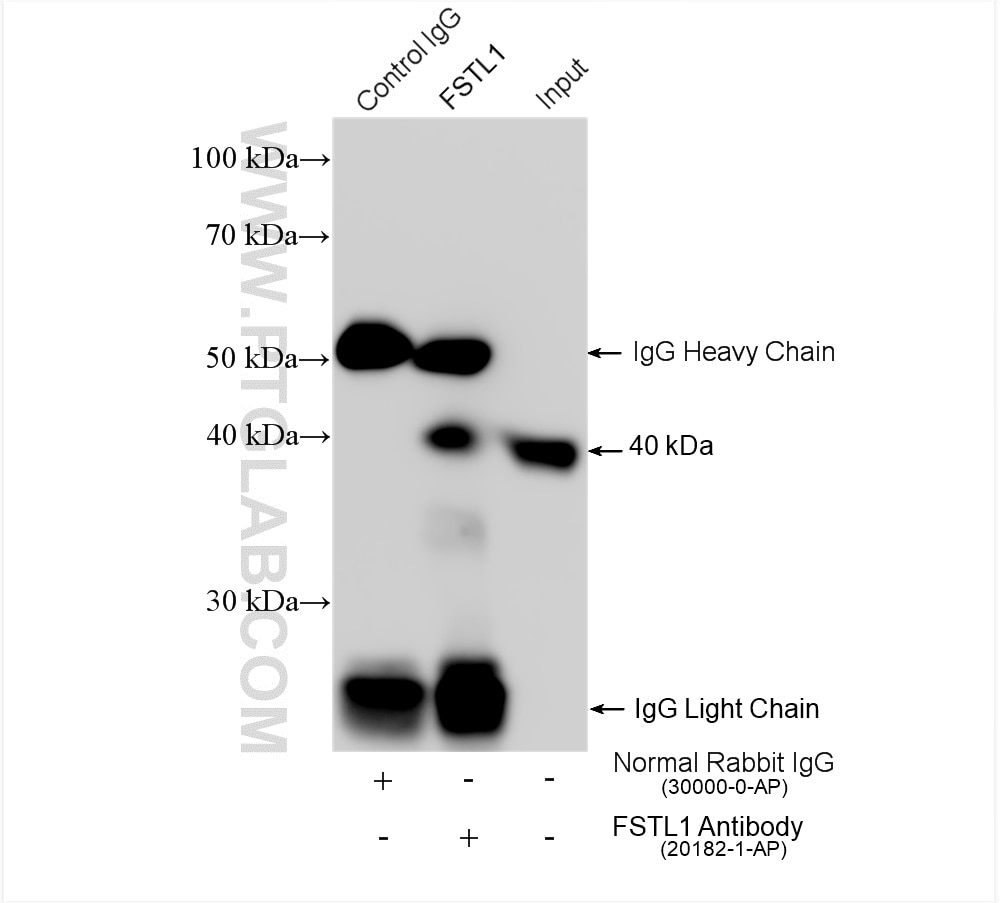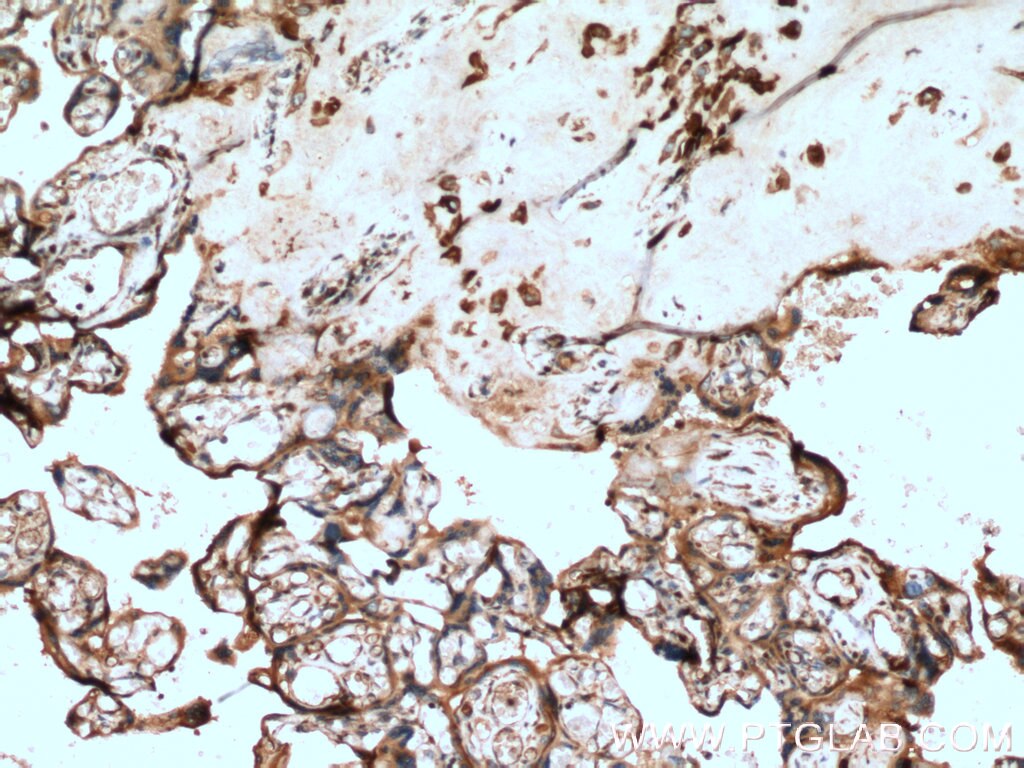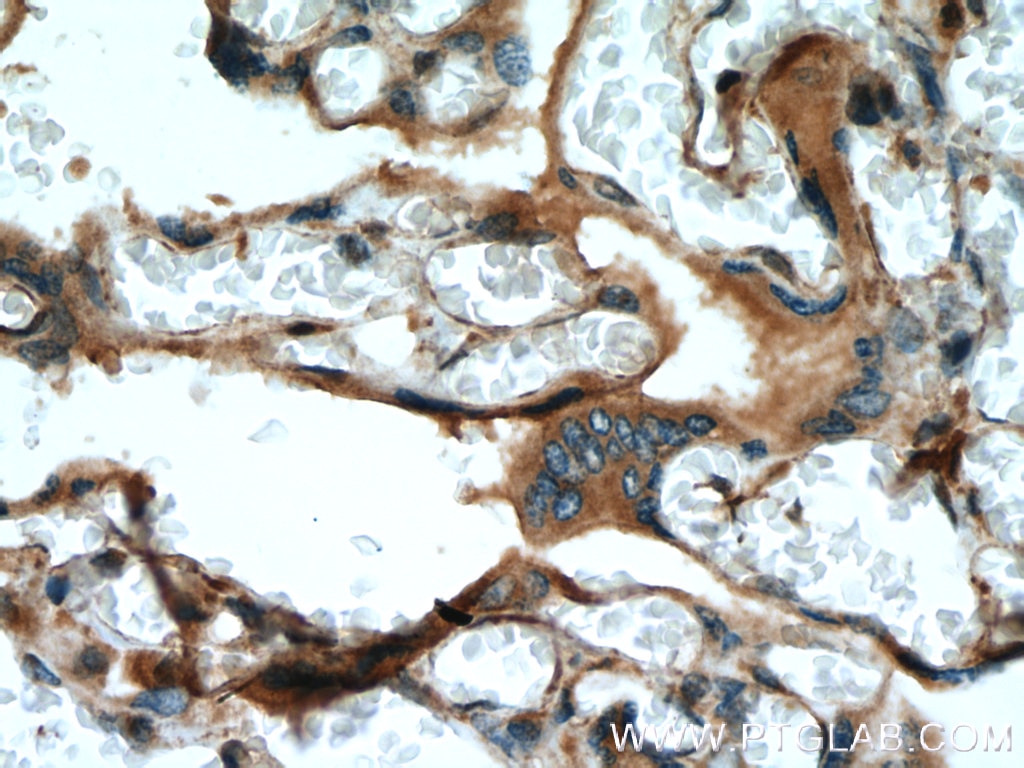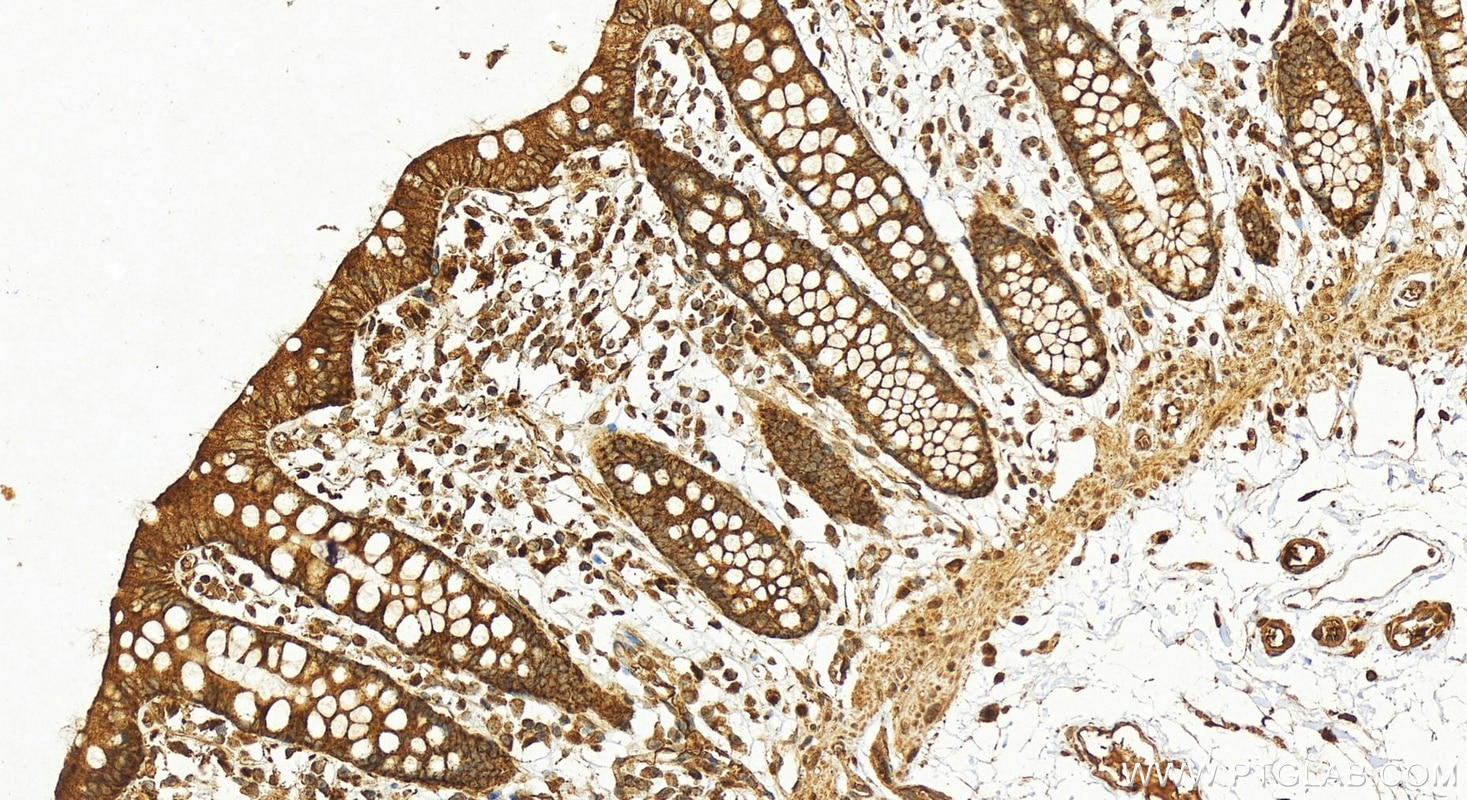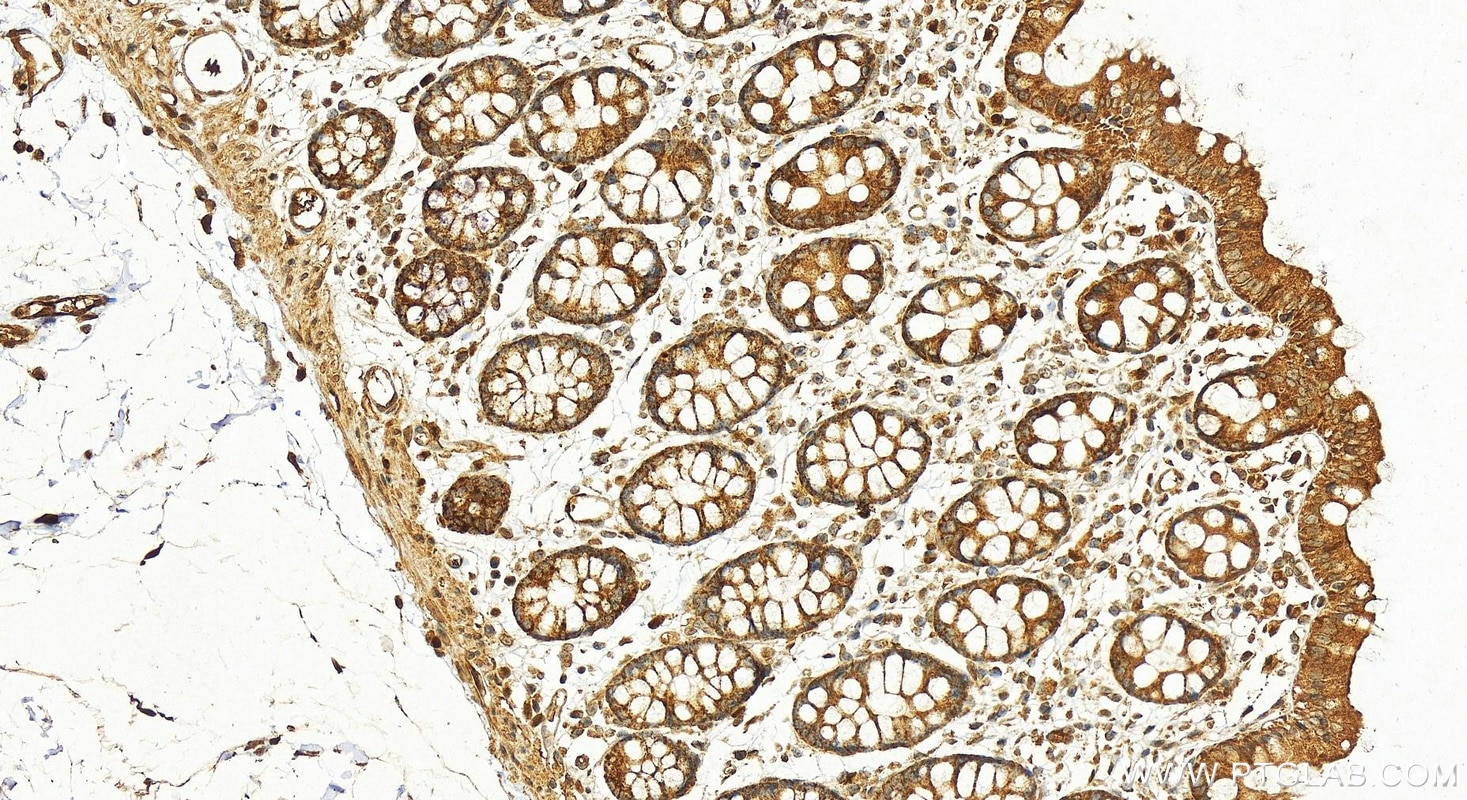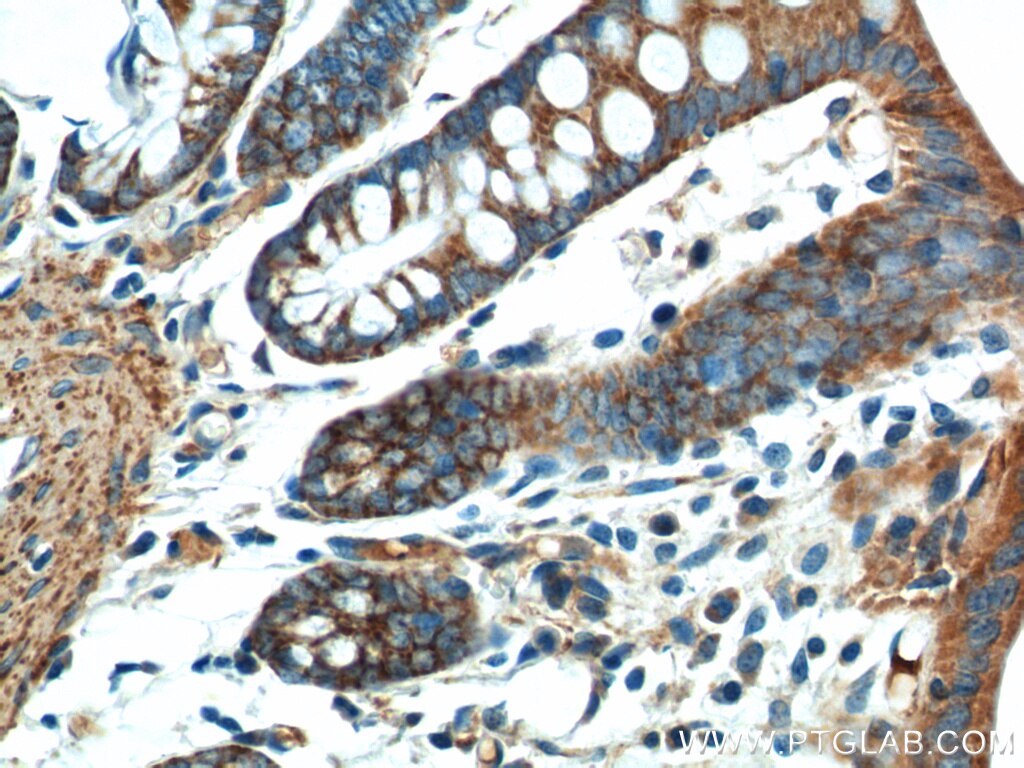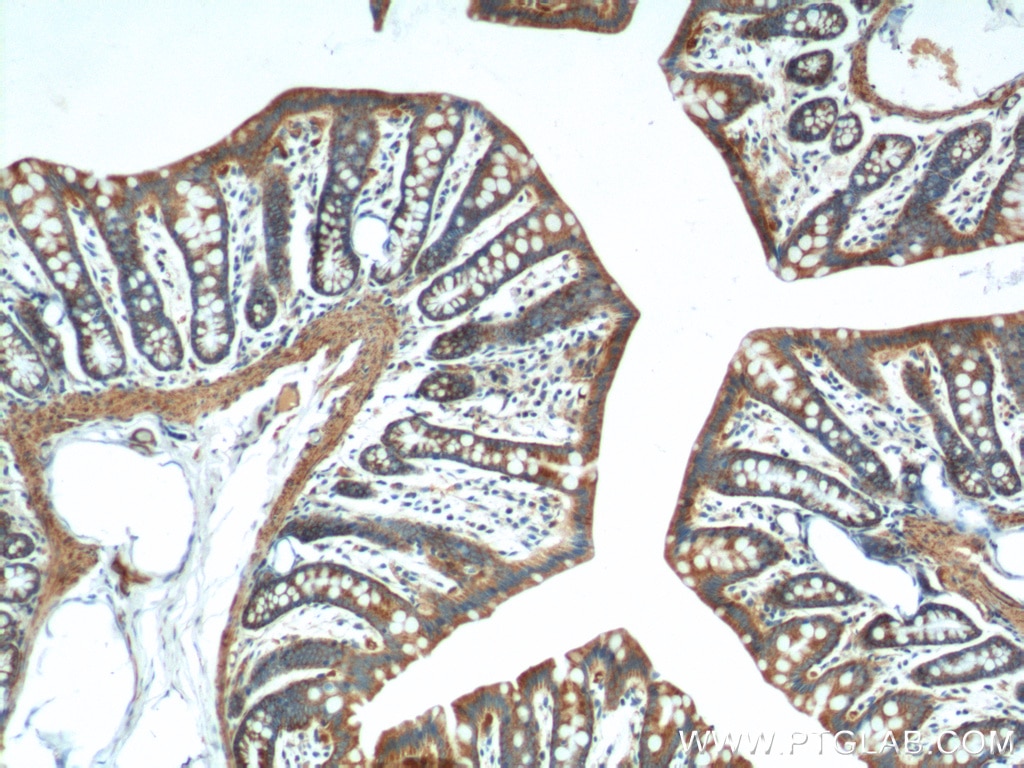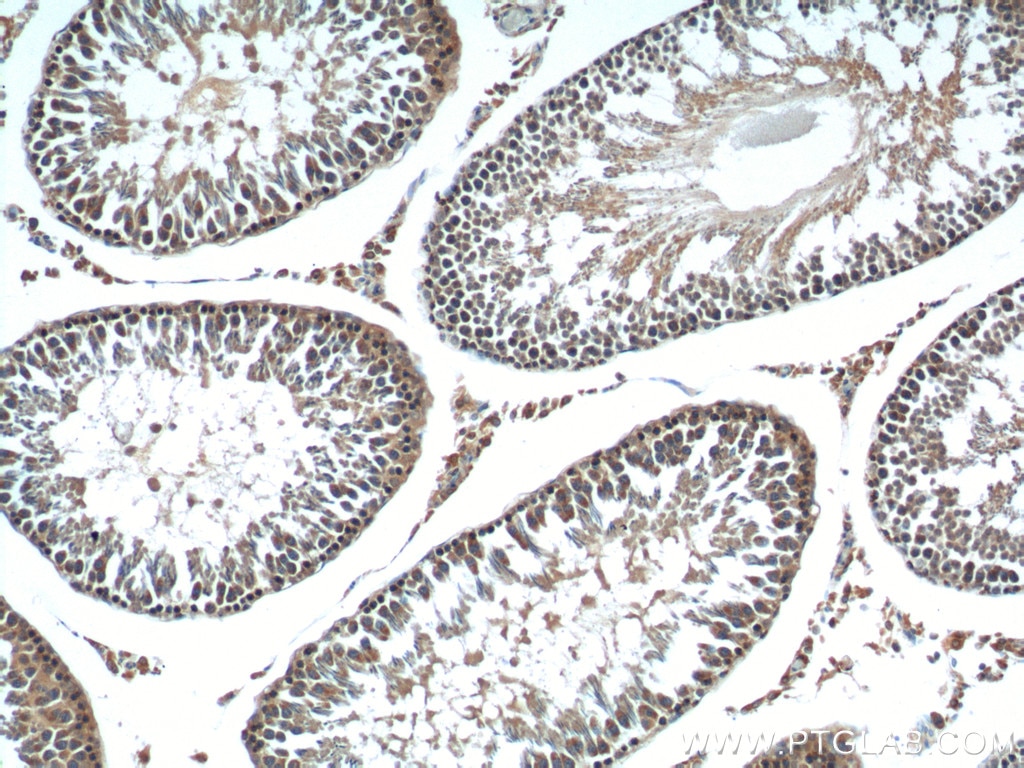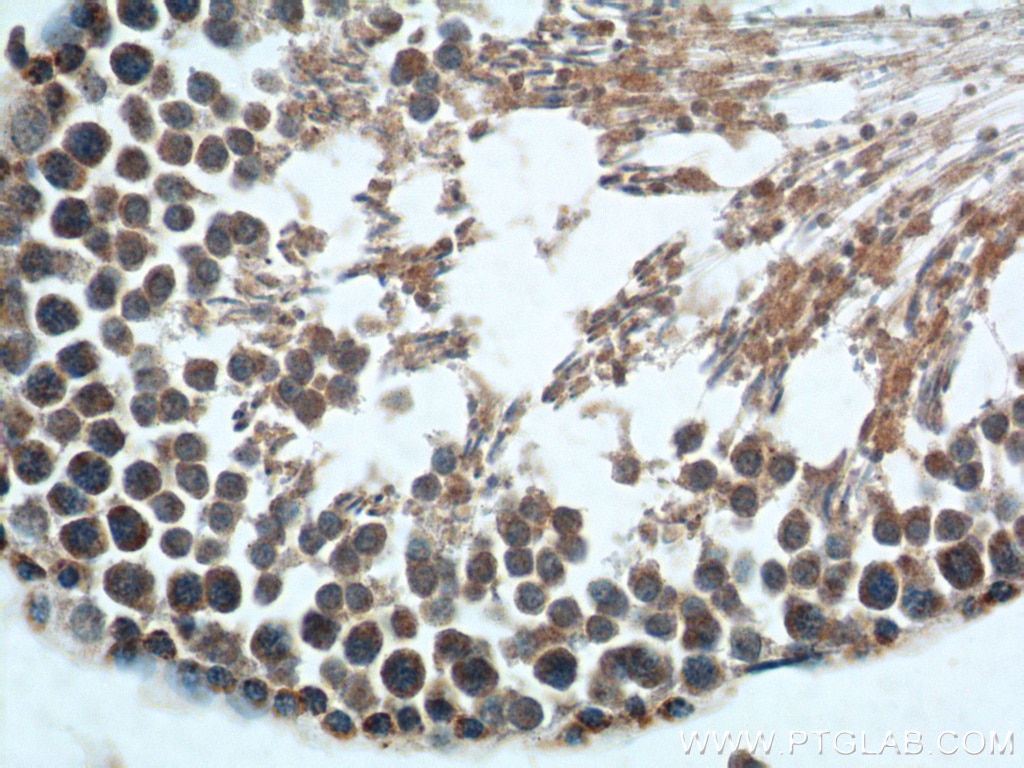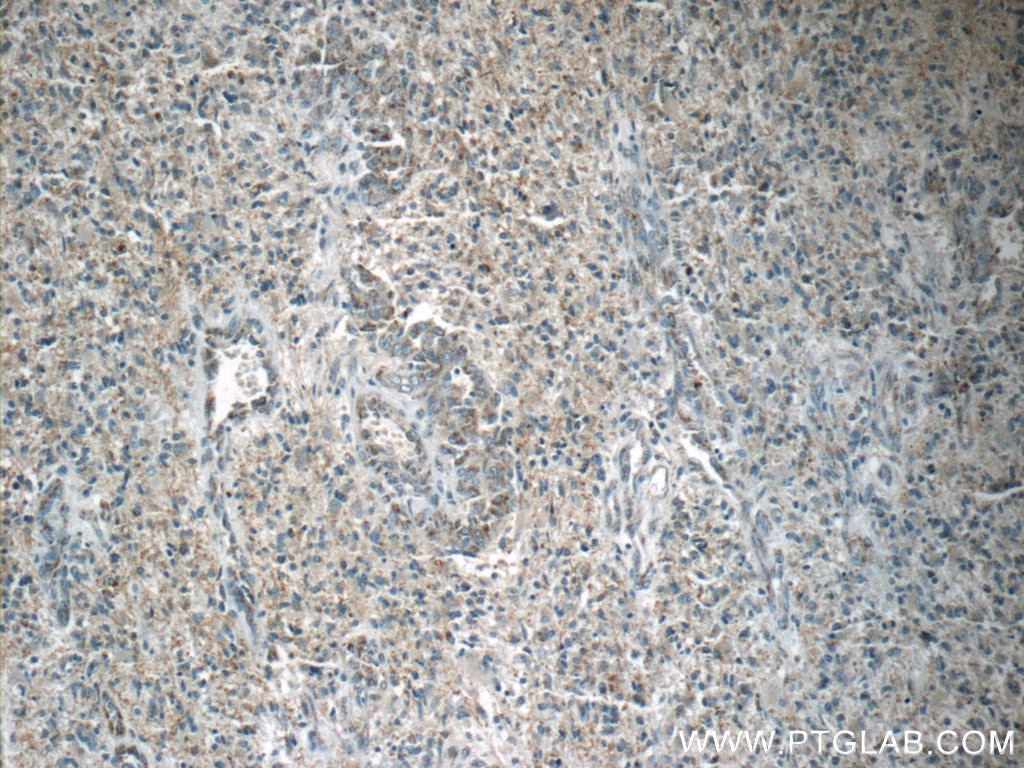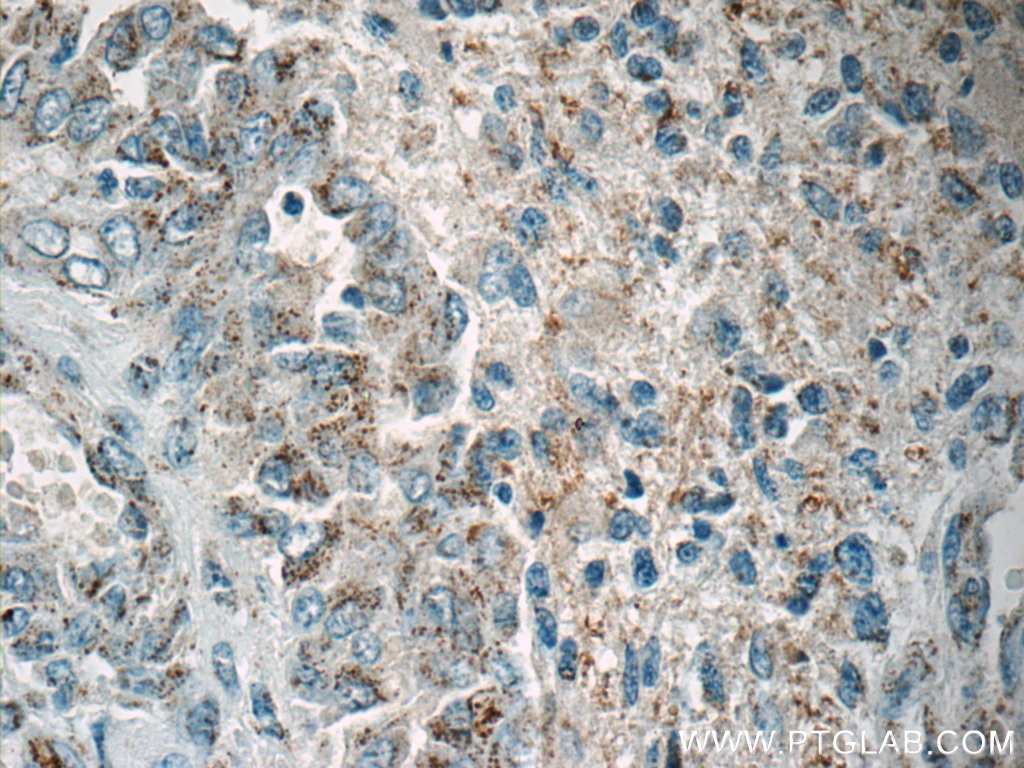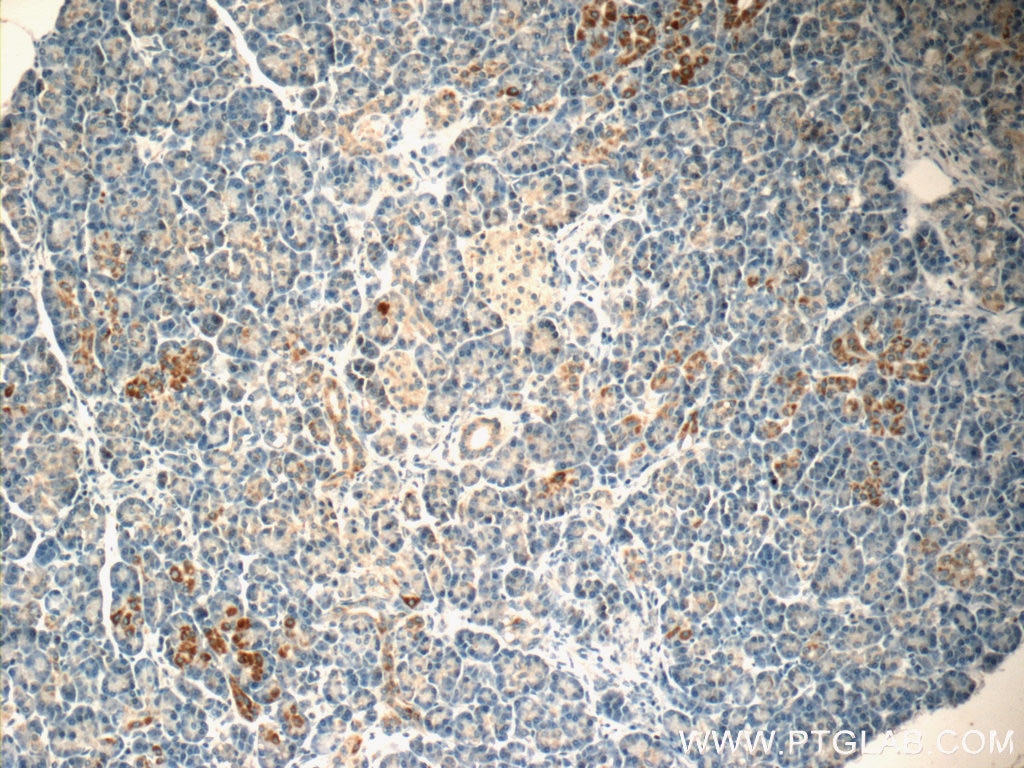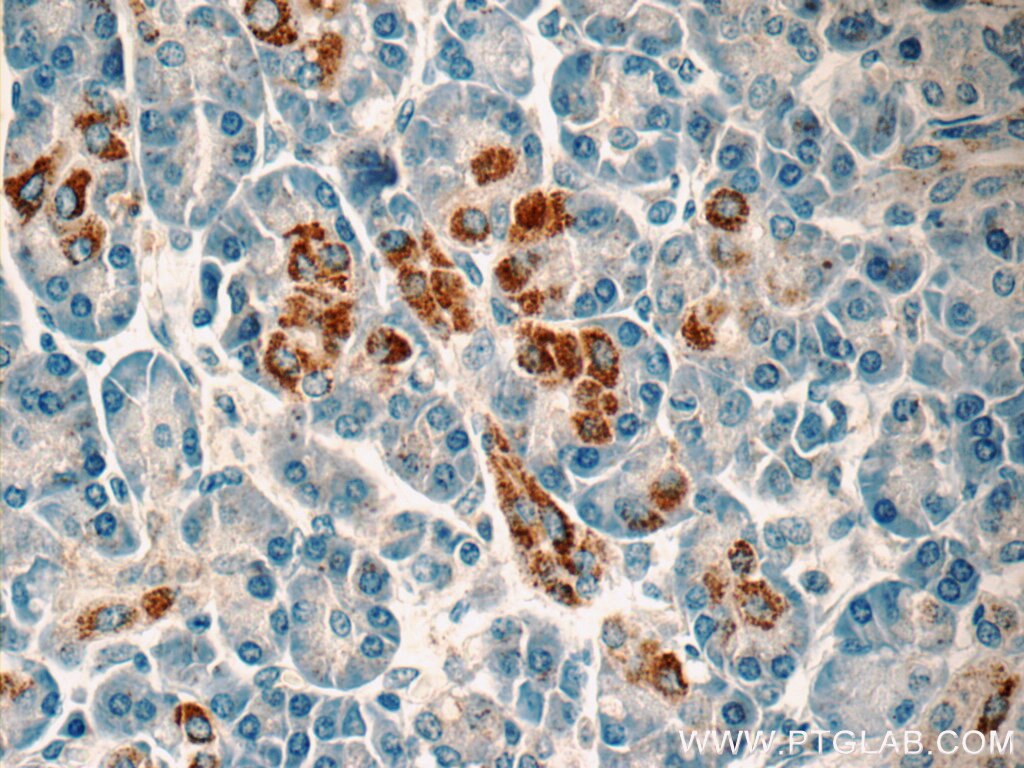Tested Applications
| Positive WB detected in | A2780 cells, HeLa cells, human placenta tissue, A431 cells, C6 cells |
| Positive IP detected in | A2780 cells |
| Positive IHC detected in | human colon tissue, human gliomas tissue, human pancreas tissue, human placenta tissue, rat colon tissue, rat testis tissue Note: suggested antigen retrieval with TE buffer pH 9.0; (*) Alternatively, antigen retrieval may be performed with citrate buffer pH 6.0 |
Recommended dilution
| Application | Dilution |
|---|---|
| Western Blot (WB) | WB : 1:2000-1:10000 |
| Immunoprecipitation (IP) | IP : 0.5-4.0 ug for 1.0-3.0 mg of total protein lysate |
| Immunohistochemistry (IHC) | IHC : 1:200-1:800 |
| It is recommended that this reagent should be titrated in each testing system to obtain optimal results. | |
| Sample-dependent, Check data in validation data gallery. | |
Published Applications
| KD/KO | See 4 publications below |
| WB | See 13 publications below |
| IHC | See 8 publications below |
| IF | See 4 publications below |
| IP | See 1 publications below |
| CoIP | See 1 publications below |
Product Information
20182-1-AP targets FSTL1 in WB, IHC, IF, IP, CoIP, ELISA applications and shows reactivity with human, rat samples.
| Tested Reactivity | human, rat |
| Cited Reactivity | human, mouse |
| Host / Isotype | Rabbit / IgG |
| Class | Polyclonal |
| Type | Antibody |
| Immunogen | FSTL1 fusion protein Ag14057 Predict reactive species |
| Full Name | follistatin-like 1 |
| Calculated Molecular Weight | 308 aa, 35 kDa |
| Observed Molecular Weight | 35-40 kDa |
| GenBank Accession Number | BC000055 |
| Gene Symbol | FSTL1 |
| Gene ID (NCBI) | 11167 |
| RRID | AB_10666439 |
| Conjugate | Unconjugated |
| Form | Liquid |
| Purification Method | Antigen affinity purification |
| UNIPROT ID | Q12841 |
| Storage Buffer | PBS with 0.02% sodium azide and 50% glycerol , pH 7.3 |
| Storage Conditions | Store at -20°C. Stable for one year after shipment. Aliquoting is unnecessary for -20oC storage. 20ul sizes contain 0.1% BSA. |
Background Information
Follistatin-like 1 (FSTL1), initially discovered as a TGF-β1-induced gene, encodes a 308 amino acid secreted 45-55 kDa glycoprotein with a follistatin domain and two non-functional calcium-binding motifs. FSTL1 has been reported to be involved in the fate determination and maturation of epithelial cells. Ablation of the FSTL1 gene in the mouse results in several structural developmental defects and neonatal lethality due to respiratory failure, demonstrating its functional importance. FSTL1 has been reported to exhibit both pro- and anti-inflammatory actions, with a specific anti-apoptotic and protective effect in cardiac or renal cell injury. Zwijsen et al. (1994) detected several isoforms of FSTL1 with molecular masses of 40 to 48 kD which differs from the 50- to 55-kD products detected by Tanaka et al. (1998) (OMIM). (PMID: 26386648; PMID: 23723173; PMID: 20176958).
Protocols
| Product Specific Protocols | |
|---|---|
| WB protocol for FSTL1 antibody 20182-1-AP | Download protocol |
| IHC protocol for FSTL1 antibody 20182-1-AP | Download protocol |
| IP protocol for FSTL1 antibody 20182-1-AP | Download protocol |
| Standard Protocols | |
|---|---|
| Click here to view our Standard Protocols |
Publications
| Species | Application | Title |
|---|---|---|
J Exp Med EGF hijacks miR-198/FSTL1 wound-healing switch and steers a two-pronged pathway toward metastasis. | ||
Bone Res Single cell analysis reveals inhibition of angiogenesis attenuates the progression of heterotopic ossification in Mkx-/- mice. | ||
Cancer Res Follistatin-like Protein 1 Inhibits Lung Cancer Metastasis by Preventing Proteolytic Activation of Osteopontin.
| ||
Cell Death Dis FSTL1 interacts with VIM and promotes colorectal cancer metastasis via activating the focal adhesion signalling pathway. | ||
Aging (Albany NY) Follistatin-like 1 deficiency impairs T cell development to promote lung metastasis of triple negative breast cancer.
| ||
Am J Cancer Res FSTL1 promotes growth and metastasis in gastric cancer by activating AKT related pathway and predicts poor survival.
|
